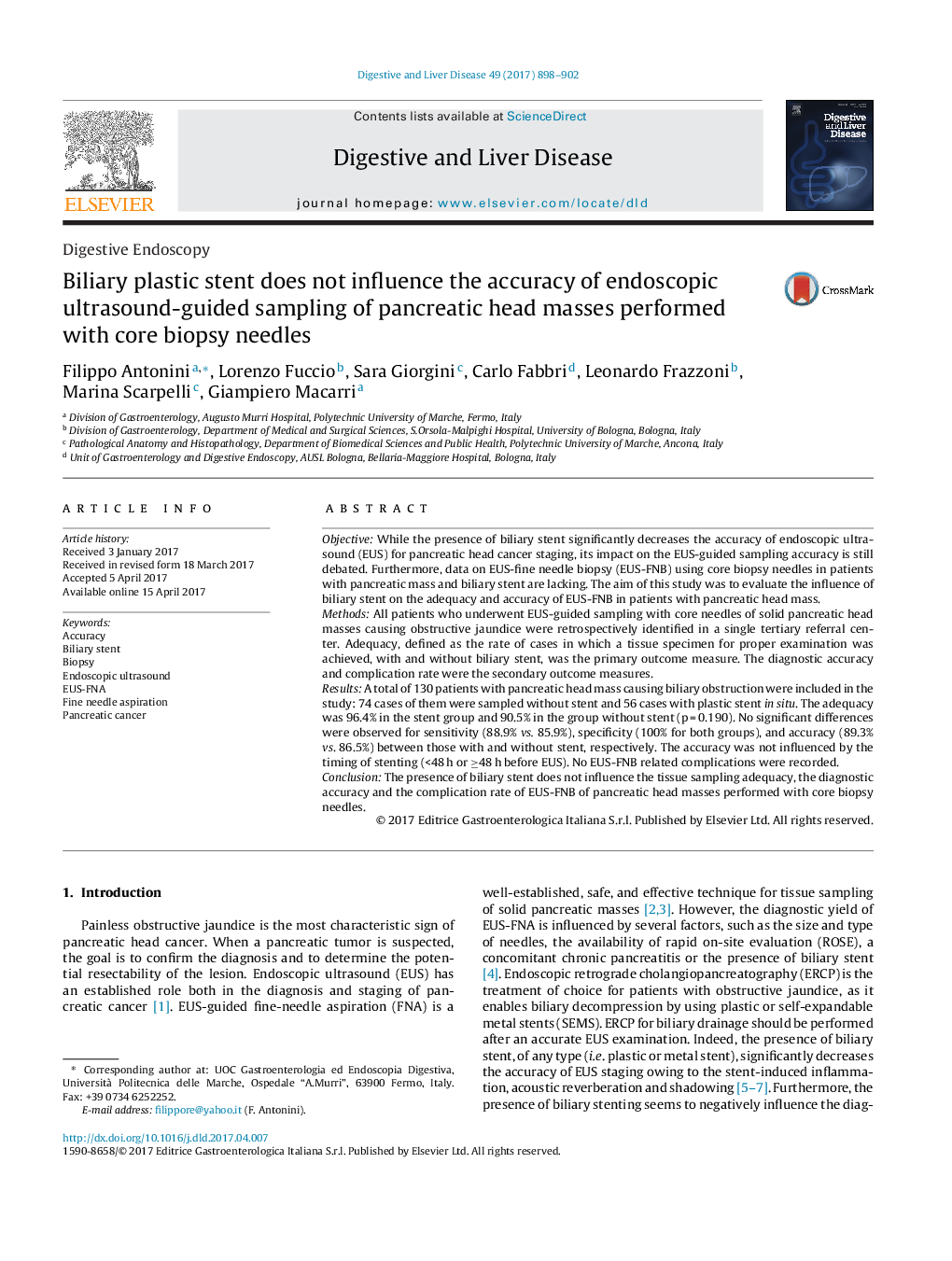| Article ID | Journal | Published Year | Pages | File Type |
|---|---|---|---|---|
| 5655377 | Digestive and Liver Disease | 2017 | 5 Pages |
ObjectiveWhile the presence of biliary stent significantly decreases the accuracy of endoscopic ultrasound (EUS) for pancreatic head cancer staging, its impact on the EUS-guided sampling accuracy is still debated. Furthermore, data on EUS-fine needle biopsy (EUS-FNB) using core biopsy needles in patients with pancreatic mass and biliary stent are lacking. The aim of this study was to evaluate the influence of biliary stent on the adequacy and accuracy of EUS-FNB in patients with pancreatic head mass.MethodsAll patients who underwent EUS-guided sampling with core needles of solid pancreatic head masses causing obstructive jaundice were retrospectively identified in a single tertiary referral center. Adequacy, defined as the rate of cases in which a tissue specimen for proper examination was achieved, with and without biliary stent, was the primary outcome measure. The diagnostic accuracy and complication rate were the secondary outcome measures.ResultsA total of 130 patients with pancreatic head mass causing biliary obstruction were included in the study: 74 cases of them were sampled without stent and 56 cases with plastic stent in situ. The adequacy was 96.4% in the stent group and 90.5% in the group without stent (p = 0.190). No significant differences were observed for sensitivity (88.9% vs. 85.9%), specificity (100% for both groups), and accuracy (89.3% vs. 86.5%) between those with and without stent, respectively. The accuracy was not influenced by the timing of stenting (<48 h or â¥48 h before EUS). No EUS-FNB related complications were recorded.ConclusionThe presence of biliary stent does not influence the tissue sampling adequacy, the diagnostic accuracy and the complication rate of EUS-FNB of pancreatic head masses performed with core biopsy needles.
